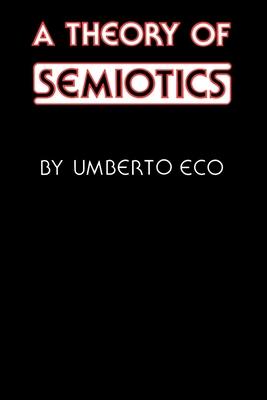" . . . the greatest contribution to [semiotics] since the pioneering work of C. S. Peirce and Charles Morris." --Journal of Aesthetics and Art Criticism
" . . . draws on philosophy, linguistics, sociology, anthropology and aesthetics and refers to a wide range of scholarship . . . raises many fascinating questions." --Language in Society
" . . . a major contribution to the field of semiotic studies." --Robert Scholes, Journal of Aesthetics and Art Criticism
" . . . the most significant text on the subject published in the English language that I know of." --Arthur Asa Berger, Journal of Communication
Eco's treatment demonstrates his mastery of the field of semiotics. It focuses on the twin problems of the doctrine of signs--communication and signification--and offers a highly original theory of sign production, including a carefully wrought typology of signs and modes of production.

" . . . the greatest contribution to [semiotics] since the pioneering work of C. S. Peirce and Charles Morris." --Journal of Aesthetics and Art Criticism
" . . . draws on philosophy, linguistics, sociology, anthropology and aesthetics and refers to a wide range of scholarship . . . raises many fascinating questions." --Language in Society
" . . . a major contribution to the field of semiotic studies." --Robert Scholes, Journal of Aesthetics and Art Criticism
" . . . the most significant text on the subject published in the English language that I know of." --Arthur Asa Berger, Journal of Communication
Eco's treatment demonstrates his mastery of the field of semiotics. It focuses on the twin problems of the doctrine of signs--communication and signification--and offers a highly original theory of sign production, including a carefully wrought typology of signs and modes of production.